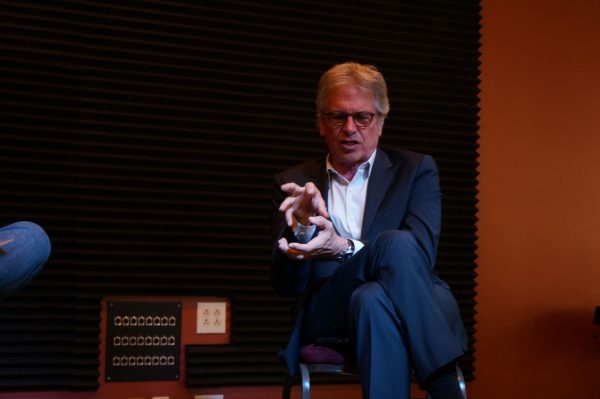Mental health services here to help
It is hardly a question that colleges and universities in the United States are suffering from a widespread mental health crisis.
According to the National Alliance on Mental Illness, 50 percent of college students ranked their mental health as below average. One in three students reported long periods of depression, and one in four students reported having suicidal feelings.
Just this semester, multiple Guilford College students have reportedly attempted to physically harm themselves, bringing the issue even closer to home.
The University of California at Berkeley reported that 45 percent of its graduate students had experienced stress-related problems that significantly impacted their personal and academic performance.
“College is a time of great stress and transition,” said Todd Clark, vice president for student affairs and dean of students. “There are lessons of independence, relationships, academics and identity. It is a great time for growth, but that growth can only happen with some stress, which can cause anxiety.”
Anxiety among college students has skyrocketed in the past decade. An American College Health Association survey in 2010 revealed 46 percent of students felt completely hopeless, while 31 percent reported feeling depressed and unable to function.
“Being a human is very challenging, and being a college student brings challenges of its own,” said Gaither Terrell, director of the Counseling Center. “It seems to be the popular notion that college students are out having a great time, without any troubles. We know for a fact that this is not true.”
Since the mid-1990s, higher education’s counseling centers have noticed a shift in the types of issues they handle. While these centers once dealt with more informational needs, 44 percent of their clients now require thorough psychological evaluations, according to the National Survey of Counseling Center Directors.
“There is a lot of uncertainty that comes with going to counseling centers, but I think it’s important to reassure people that it’s normal to reach out for someone as a means of support,” said Milner Community Director and Student Success Mentor Amy Costa.
At Guilford, the Counseling Center has four counselors on staff and a part-time psychiatrist to work with a limited number of students.
“It’s the only free counseling you’ll ever get,” said Brian Daniels ’11, Binford community director and student success mentor. “My advice is to use it.”
Much like the Learning Commons, Disability Resources or peer mentoring, the Counseling Center is open to any student who needs it.
“I appreciate how open and welcoming the environment is,” said first-year Leanna Kantt. “I was worried about the stigma when I went for the first time, but I saw immediately that it doesn’t exist.”
Unfortunately, this stigma and misunderstanding continue to prevent some students from seeking its support.
“Part of the stigma may be associated with people not knowing others who have received treatment,” said Beth Rushing, vice president for academic affairs and academic dean. “Sometimes people think that mental illness is a sign of weakness or that the person did something wrong. Nothing could be further from the truth.
“I’ve been to counseling for depression, myself, a couple of times in my life, and it made a huge difference for me. I am so very grateful to have received that help.”
Mental health may always be a concern, but at Guilford, the resources are available for students to receive the help that they deserve.
“Our culture in many ways gives us the message that we shouldn’t have to ask for help,” said Terrell. “We are here, therefore, to show the community that there is truly no shame in reaching out for a helping hand.”






Gregory Smith • Dec 1, 2015 at 10:23 am
Very well written. I am impressed that you were able to bring out such a controversial topic and give it justice.
richard amstutz • Nov 20, 2015 at 12:19 pm
Another extremely well written article by an outstanding staff writer.